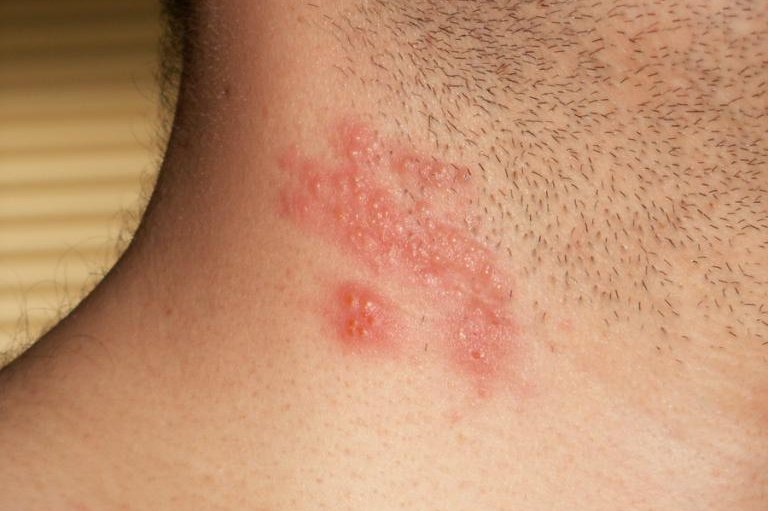A review of two million patients 50 years and older found the newer shingles vaccine Shingrix was far more successful in preventing the condition compared with the older vaccine Zostavax. Photo by
John Pozniak/Wikimedia Commons
Oct. 26 (UPI) -- The newer shingles vaccine Shingrix was far more successful in preventing the infection compared with the older vaccine Zostavax, according to a review of more than 2 million patients 50 years and older.
Researchers in Toronto found the GlaxoSmithKline adjuvant recombinant subunit vaccine, which is germ specific, was 85 percent more effective in reducing shingles, also known as herpes zoster, than Merck's Zostavax, which is live attenuated. The findings were published Thursday in the The BMJ journal.
"There haven't been any head-to-head studies comparing the two shingles vaccines, so the results from our systematic review can be employed by policy-makers, clinicians and patients to make their decisions on the use of these vaccines," Dr. Andrea Tricco, a scientist with St. Michael's Hospital and associate professor at the University of Toronto's School of Public Health, said in a press release.
"If you have to choose between two vaccines and you have evidence showing that one of the vaccines is a little more effective, or a little safer than the other, then you might be more willing to take the safer and more effective one."
Shingles, a viral infection, occurs through reactivation years after the latent varicella zoster virus, which causes chickenpox, and is mainly contracted by people 50 and older.
In the United States, almost 1 out of every 3 people will develop shingles sometime in their lifetime, according to the Centers for Disease Control and Prevention. Anyone who has recovered from chickenpox may develop shingles. The risk of shingles increases as people get older.
At increased risk are people with immune systems compromised from working properly, such as certain cancers like leukemia and lymphoma, and human immunodeficiency virus, or HIV. Also immunosuppressive drugs, such as steroids and drugs that are given after organ transplantation, pose increased risk.
Symptoms include a painful rash that develops on one side of the face or body. Blisters typically scab over in seven to 10 days. The rash typically clears up within two to four weeks.
The CDC recommends that healthy adults 50 years and older get two doses of Shingrix, which was approved by the the U.S. Food and Drug Administration last year. That is the CDC's preferred brand over Zostavax, which has been in use since 2006.
The agency says two doses of Shingrix is more than 90 percent effective at preventing shingles and postherpetic neuralgia, the most common complication from shingles. Zostavax, which is given in one dose, reduces the risk of developing shingles by 51 percent, according to the CDC.
The Toronto researchers reviewed 27 unique studies, including 22 randomized controlled trials, of 2,044,504 patients between 1998 and 2017.
Network meta-analysis of five randomized controlled trials found no statistically significant differences between the live attenuated vaccine and placebo.
In an analysis of 11 randomized, controlled trials Zostavax was associated with more statistically adverse events at injection sites than the live attenuated vaccine















